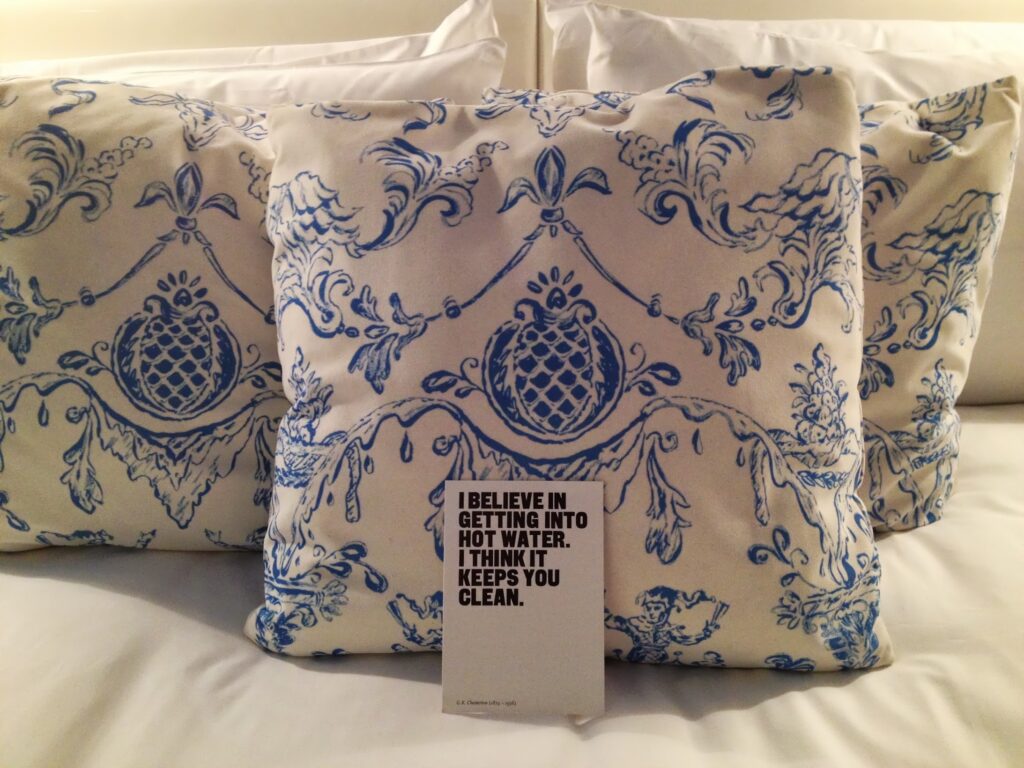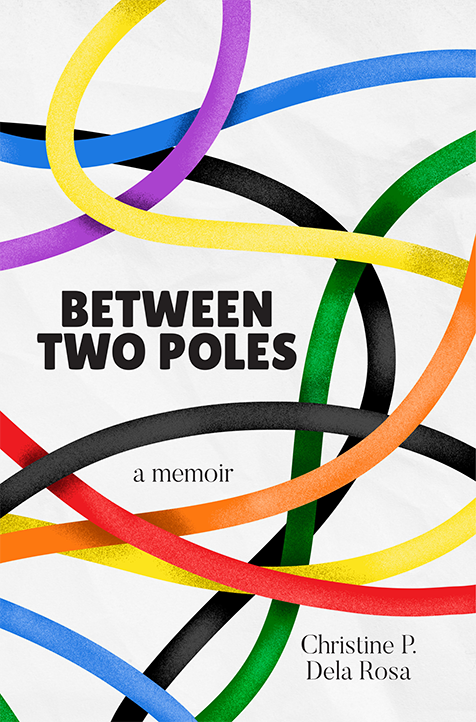The Truth About Caregiving And It Being An Extrinsic Identifier
The Whole Care Network Author’s Spotlight shines a light on Christine P. Dela Rosa, author of “Between Two Poles”. We welcome Christine as a new guest blogger and WCNFluencer!
We’re Different People In Different Spaces
I remember leaving my first job; I had been there for more than seven years. Despite a strong connection with my team and tasks, I felt compelled to seek new challenges, even though the specifics were unclear at the time.
So I started my new gig, and to my dismay, it was like trying to make an omelet by chasing live chickens. Dun dun dun. The confidence I had in my professional tank was empty. What were these terms everyone seemed to know? How were they coming to decisions so fast? It was like taking Spanish all over again, where the teacher wanted us to think in Spanish instead of first translating her question into English and then translating my answer back into Spanish out loud. I didn’t know what it meant to “act naturally” at work; I froze up and lost some sense of self. At least, at work I did.
It’s all too familiar to associate a job with your identity. Hey, what’s your name and what do you do? After all, that’s what we spend many, if not most of, our waking hours doing. On a higher altitude of reflection, your career can be one of the longest relationships you have to something constant in your life. Sure, people can be constants, too–a family member, a partner, a childhood friend, but you don’t spend the amount of time with those people that you do thinking about growing your professional craft. Now for those who more frequently switch career paths or for those who have taken breaks from working, it’s a bit easier to detach from that relationship. Which begs the truth: the longer you spend with, or thinking about something, the more you attach yourself to that thing, and the more you associate your identity with it.
The Tricky Relationship Between Identity And Our Primary Roles
It’s risky to derive identity and self-worth from anything that doesn’t come from yourself, especially if that thing suddenly stops existing in your life. Read: your job.
Well, I used to think that “intertwining one’s identity to a job title” was the most visible example of “deriving identity to something outside yourself.” Then, I changed that opinion when I experienced an intense few years caring for my best friend. Where that got unhealthy, is when I began to see myself as my friend’s caretaker–not just as a role I played, but as my entire life. That’s who I was and I couldn’t divorce that from my identity–shopping for her, checking in on her schedule, bringing her to appointments, “caregiver” became my “Hello my name is” badge. The rest of my personality fell away and my life was a rotating task list.
To be clear, caregiving in and of itself is a great introduction to someone. Jimmy’s mom is motherly, is nurturing, is prepared for anything. However, what happens when Jimmy becomes an astronaut and his mom loses contact with him? Or God forbid, what if Jimmy passes on before his mom? Who is Jimmy’s mom now? What are the kinds of things she should do when Jimmy isn’t around? So like a job can influence how we see ourselves, my well-being depended on whether my friend was feeling good and functioning well. Are they happy these days? Have they improved since I started looking out for them? As folks caring for other folks know, this goal-post is preposterous and unhelpful. Of course there are multiple factors that influence someone’s ability to be healthy and thrive independently. Of course! And how others feel and progress is not an evaluation of your worth. But when your day-to-day is full of thinking about someone, you might believe that. Because if it wasn’t true, then maybe it wasn’t worth putting in the extra hours. Maybe if time spent caring doesn’t positively translate into impact, then why spend time in the middle of the night worrying, jotting down books to read to better your communication style, or taking photos of food you think your loved one might like?
We’re not “paid” to center our thoughts on who we care about when we’re not with them. We’re not “guaranteed” that this will help them grow or feel better. But we do it all anyway because we love them.
When I suddenly stopped caring for my best friend in my early 30s, I still thought of myself as someone that cared—about people, the world, fictional characters on television and in books lol. But the departure of my friend from my life (to another city, not a departure from this earth), left me with a pretty hollow. Was I less of who I was without tending to her medical needs and inspirational experiences? Did I no longer have something to offer people? Would it be selfish to pursue my own interests without also considering her life?
I wonder if empty nesters feel similarly. To look for purpose in relation to the kids that once took up so much space in their lives. After I stopped centering my life around my friend’s health, I was still me…just as she was still she, and independent of me. That sentiment, while as valid as a lesson-filled nursery rhymes, wasn’t enough. Not for at least a year after my friend left for another city.
Separating Identity From Extrinsic Attributes
To rebuild my sense of self, I had to reacquaint myself to what gave me life. What did I enjoy? What did I avoid? What made me feel like I needed more hours in the day for just to prolong an experience? No, I didn’t swap a codependent relationship for an addictive habit. Instead, I spent a few years exploring things I hadn’t experienced before: I moved cities, formed new friend groups, and tried on a couple different jobs.
On the more bite-sized end, I wrote a list of things that scared me and baby-stepped my way into those experiences, too. To name a few: I paraglided (and loved it despite screaming my head off), I tried Zumba (in public!), I grew some plants (some of which survived my most recent move), I baked (that did not take), I played tabletop (and wasn’t good, but still had fun), and I read books outside my usual genres (who knew historical fiction could still feel like learning?). This taught me that I liked listening to stories that were different than my own, that I liked connecting people with information they might need, and that I liked being active because it reminded me of what bodies are capable of. And I kept collecting these truths about me, over and over, grouping like-minded themes together. Until finally, I understood who I was, separate and apart from a person, place, or activity.

If you find yourself in a similar position, start by trying anything different from your regular routine. Because sometimes, we conflate identity with repeated behaviors. While strong routine is powerful, it can build and reinforce a narrative that we eventually feel obligated to fulfill.
- I’m a person who works out.
- I’m a homebody who builds websites.
- I’m a fruit lover who makes the best personalized smoothies.
Whatever people do on a regular basis then, becomes a shortcut for the thing they need to inflate their identity. So without familiar activities, we can lose our sense of self. Could this be reframed though? Is there a greater truth that includes the activities we prioritize, but perhaps doesn’t limit us to being a proxy for someone participating in those activities?
- I value well-being and activities that support a healthy lifestyle.
- I delight when people find what they need, so I enjoy enabling others to better communicate their offerings.
- I see beauty in nature and the fruits it literally bears. If I can spread that joy to other people, I’m going to do it and make it personal to them.
Whether the new things you expose yourself to become part of your life is less important. This exploration phase is actually a journey of uncovering deeper truths about yourself.
Today, when people ask me for an introduction, I lead with my most dominant personality traits and the interests that give me life. “Hi, I’m Christine. I love exploring new communities, or understand the behind-the-scenes of craft, because I’m curious about how everything fits together. I’m a big believer that everyone is part of the same stardust but understand that history and circumstance make us show up differently. That’s fascinating! And I’m most alive when I can see why that is. Lately I’ve been trying to learn about ________.” Or, at least that’s my intention when introducing myself. More often, I end up word vomiting the thing I’m most into studying. But you get it.
I don’t want new people seeing me as a job title. I exist outside of a box and like to invite the possibility for making connections that live outside of those titles. This also leaves room for me to form relationships with / detach myself to multiple things, not having to worry about what happens when those I take a vacation from those things.
So tell me about yourself, who are you? What gives you life?

Meet Christine P. Dela Rosa
Christine is curious about communities, compelled by narrative non-fiction, and seeking reasons to bring people together. She published a memoir, “Between Two Poles,” chronicling more on setting boundaries and evolving the relationship between caregiving and her identity. She has worked across public health, community-building, and collaboration industries, facilitating behavior change through marketing and public-facing programs. She has written on emotional well-being professionally and volunteers with organizations supporting well-being, like San Francisco CASA–a nonprofit that empowers everyday citizens to advocate for abused and neglected foster children. Residing in California, Christine enjoys listening to audiobooks and podcasts while on daily walks.
Learn more about Christine on Linkedin
Get In Touch With Christine Here
